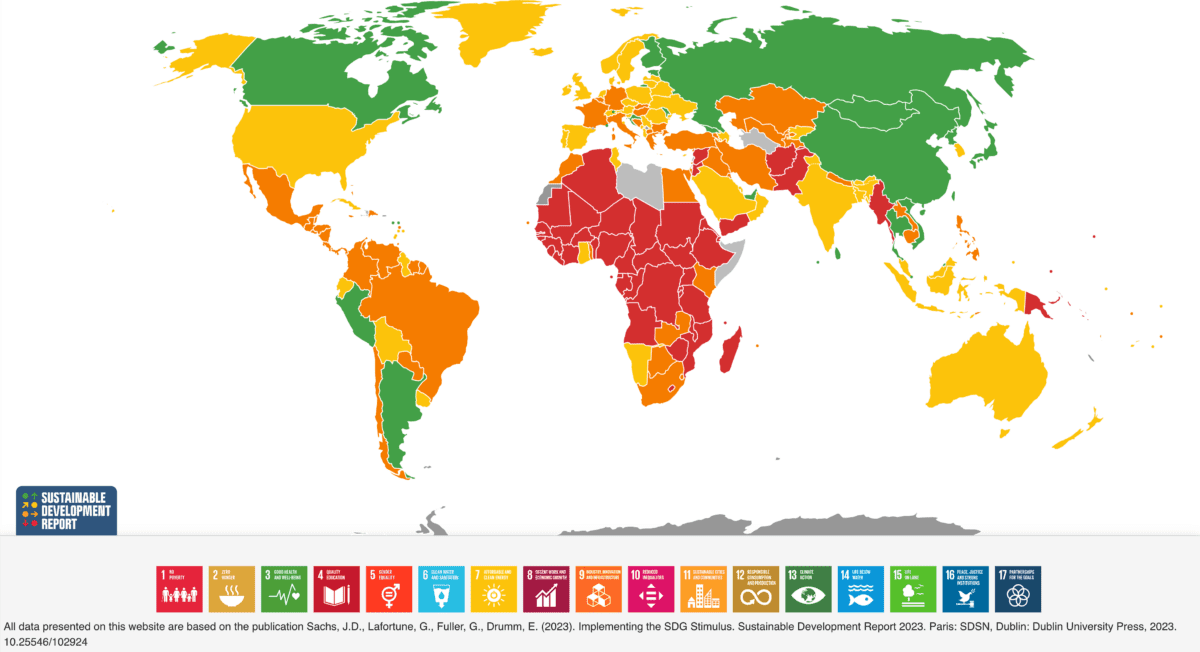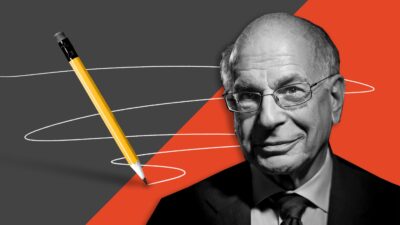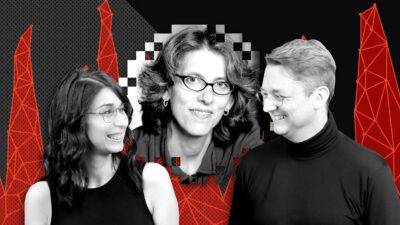
Are we there yet? Australia’s bumpy road to SDG 4, achieving quality education
Ensure inclusive and equitable quality education and promote lifelong learning opportunities for all.
UN Sustainable Development Goal 4
According to the Sustainable Development Goals Index, Australia marks the SDG 4 goal as ‘stagnating’.
Australia, with its strong education system, should be capable of playing a significant role in achieving this global goal. So, what’s holding us back?
In fact, this education focused goal is one of Australia’s top two performing SDGs (along with SDG 3, Good Health and Well-Being). Our good points include allocating 8.5% of GDP to education. This investment supports research, innovation, and the overall improvement of the education sector. Just over 45 percent of Australians aged 25-34 possessed higher education qualifications, contributing to a skilled workforce and a competitive economy.
Challenges persist, including Indigenous education disparities, lack of access for low socio-economic status (SES) and regional students to quality education, the digital divide between metropolitan and regional populations, low numeracy and literacy skills amongst the older population.

Source: SDG Index
COVID-19 impacted quality education
COVID-19 disrupted education systems worldwide, including Australia.
To curb the spread of the virus, Australian schools and universities shifted to online learning. While this allowed for the continuity of education, it exposed disparities in access to technology and the internet, especially in remote and disadvantaged communities. Equitable access to online resources remains a challenge.
Post COVID-19, the sector has bounced back, but differently. The focus is shifting towards engaging more domestic students in education and around designing flexible programs to accommodate diverse work and life demands. Now with the rise of artificial intelligence (AI) the educational sector is again at crossroads with disruption, exacerbated by the mounting potential of generative AI in learning and teaching. COVID-19 made clear that future education needs to be more inclusive, equitable, flexible, and adaptable. AI is offering opportunities on how to achieve this.
Moving forward for quality education in Australia
So we made good progress, stumbled over COVID-19, but what now? SDG 4 calls on countries to bridge learning gaps. In Australia this means:
- Combat disadvantage: it is not enough to identify who are our disadvantaged students – we need to commit and bridge that unfair gap. A great place to start is to ensure all students – be they in Arnhem land or in a city school that is bursting at the seams with kids but not enough tech, have the same access to laptops, Wi-Fi and digitally knowledgeable educators.
- Tackle wellbeing: schools and universities must address the loneliness epidemic and address mental health issues. Students thrive when they feel they belong. Fostering a supportive learning environment is an educator’s job to be taken seriously. Counselling and mental health awareness belong in every educational institution.
- Embrace technology: digital literacy is the magic skillset of the future. This not only supports online learning but also prepares students for a digitally connected world.
- Investing in teachers: continuous professional development for educators is vital to adapt to changing educational landscapes. Training in online teaching and innovative pedagogical approaches will benefit both students and educators.
- Aim for equity: we have a lot to learn from vulnerable groups, including Indigenous, low SES, and other disadvantaged groups. Culturally sensitive curriculum, support programs, and community engagement are key.
- Research and innovation: AI tools offer great potential to scale education, reach more learners, connect individuals, and critically engage them in lifelong learning. Encouraging collaboration between educational institutions and industry can drive positive change and improve the quality of education.
The change starts with us
So, what are we, at the University of Sydney Business School, doing to support Australia’s progress towards inclusive and equitable quality education?
We are building flexible postgraduate programs that accommodate and meaningfully complement existing work and study experience, with a firm focus on building digital literacy, while expanding our portfolio of postgraduate education. This initiative recognises the need to focus on developing lifelong learning skills in Australia’s population and encourage more diverse people to take up further study, reskill, upskill, and continue their personal and professional learning and development. We also want to help learners fit this around working and caring responsibilities.
Secondly, the Business School is currently reviewing its undergraduate Business program curriculum to increase access and support for diverse students, strengthen industry and university collaborations in providing authentic learning experiences, and importantly build Australia’s national skills to address the pressing future challenges like digital transformation, ageing population, geopolitical divide, and climate change.
Thirdly, 13 of our Units of Study in our Business programs address SDG 4: either embedded in students’ learning material, activities, assessments, or project work. For example, in the core unit BUSS5220 Responsible Business Mindset of our Master of Commerce degree, students discuss responsible marketing strategies for children and the need for education in this regard.
Importantly the Business School has a social obligation to develop future leaders who can advocate for greener and fairer business practices. We need our students to inspire and empower those around them to follow suit.
We must embrace the challenges associated with SDG 4, because they hold opportunities to boost economic productivity as well as create personally and professionally fulfilled citizens.
Image: Aaron Burden
Lilia is a Senior Lecturer and Academic Lead, Course Enhancement at the University of Sydney Business School. She is an educationalist whose research focus is on higher education, academic careers, research and skill development.
Share
We believe in open and honest access to knowledge. We use a Creative Commons Attribution NoDerivatives licence for our articles and podcasts, so you can republish them for free, online or in print.







